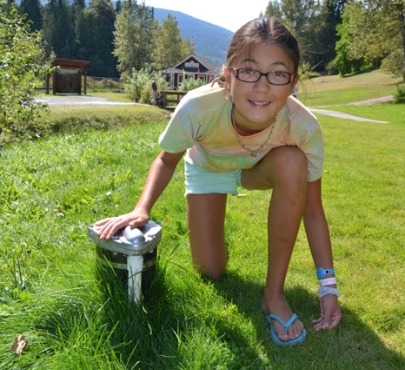Domestic groundwater use in BC
January 13, 2021

Domestic groundwater use exempt from licensing
In BC, use of groundwater for domestic or household needs does not require a water licence. No jurisdiction in Canada nor in neighbouring Washington State or Idaho permits or licences diversion of groundwater for domestic use, likely because it is:
1) not a popular thing to do;
2) administratively too burdensome to implement; and
3) generally considered a minor (de minimus) quantity of water.
The exemption from licensing domestic groundwater use means a home owner can have a well drilled and pump groundwater for household use without seeking government approval to do so (the well does have to be drilled or dug to meet minimum well construction standards in the Water Sustainability Act (WSA)).
Water right associated with domestic groundwater use
Even though domestic groundwater use is not licensed in BC, the WSA (Section 22 (8)) deems a water right to domestic groundwater use, based on the date of first use as the date of precedence, and a typical quantity of 2 m3/day. So when there is a water shortage and government curtails water use, unlicensed domestic groundwater users are also subject to curtailment within the senority-based system as with other licensed users. Even when use is curtailed, a fraction of the domestic use – essential household use of 250 L/day – is still allowed under the Act.
Licensing of domestic groundwater use in specific areas, where necessary
While licensing of domestic groundwater use is generally exempt in BC, water shortages and water conflicts may become so acute in some areas that controlling domestic groundwater use may be necessary. The WSA provides government with authority to enact future regulations in specific areas to control domestic groundwater useage (e.g., drilling permits for new domestic wells or licensing of domestic groundwater use). These enabling provisions were included in the WSA to allow more stringent management of groundwater use, if and when it is needed to protect groundwater from over-use.
Register your domestic well to protect your right
Because domestic groundwater has a water right associated with it, the statutory decision maker (SDM) must take that right into consideration when deciding on whether or not to issue a licence to someone else proposing to divert groundwater for non-domestic use. The SDM will likely check the province’s water well database (GWELLS) to see if domestic wells exist nearby. If you have a domestic well make sure the record of your well is in the government’s GWELLS database (for a new well the driller is required, by law, to submit the well record to government). To register your well in the GWELLS database, follow this link.
Responsibilities associated with domestic groundwater use
Even though domestic groundwater use is not licensed in BC, there are some basic responsibilities that a domestic well owner has under the WSA, such as:
· Make use of the water (beneficial use principle);
· Maintain access to the well for inspection, maintenance and repairs;
· Make sure the well has a secure cap so vermin and flood waters don’t go down the well;
· Do not leave junk, fuel, chemicals around the well; and
· Make sure the grading around the well allows water to drain away from the well.
If you are one of those who have a flowing artesian well, it is your responsibility to control that flow. Finally, at the end of the well’s useful life, the home owner is required to have the well decommissioned.
Finally, regularly testing the water quality is recommended. Contact a local analytical laboratory or health authority to enquire about how frequently to test your well water, what to test for, what time of year to test, how to collect and ship a water sample, and how much testing will cost.